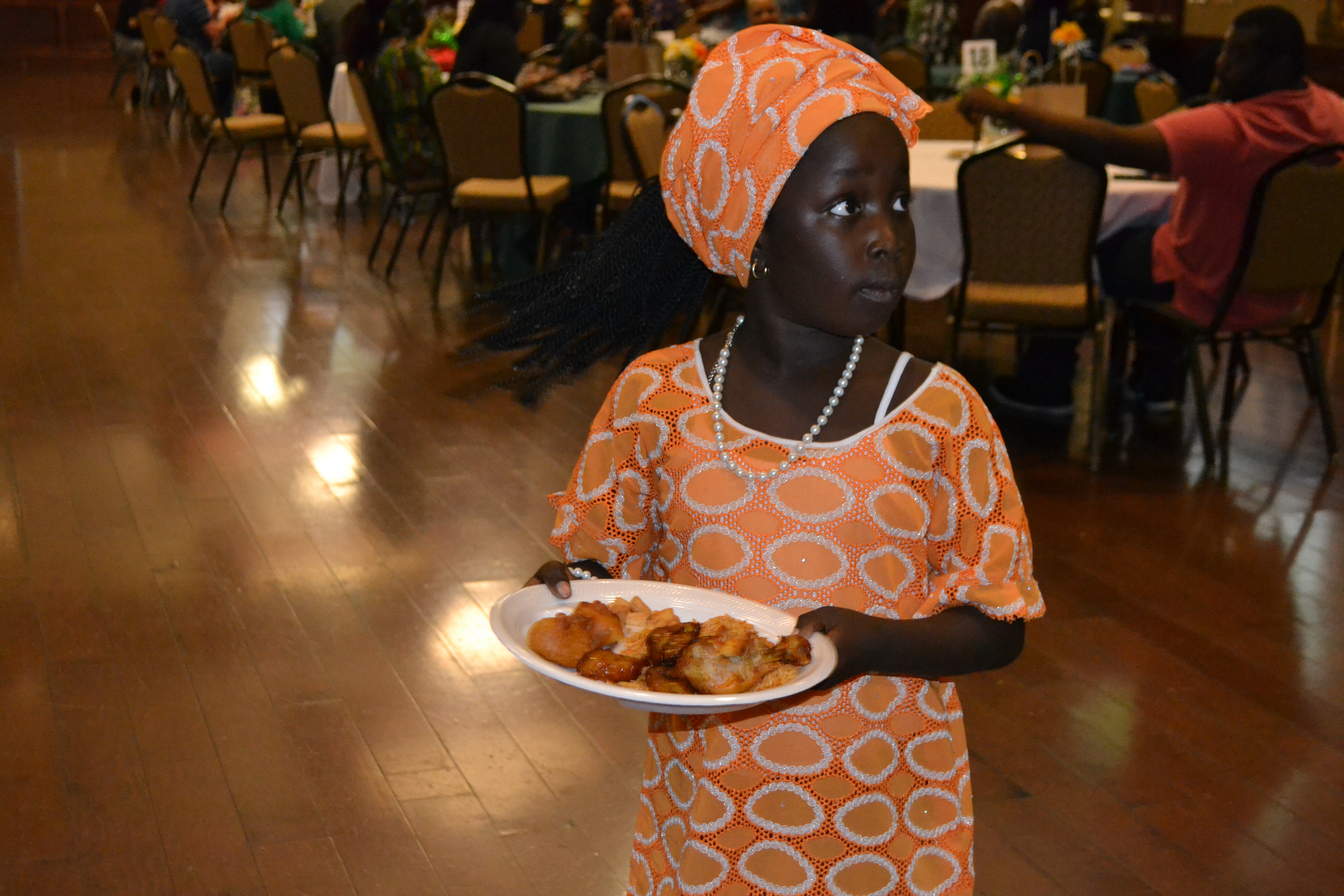Stacie Larsen
Staff Writer
On Oct.1, in the MCC Ballroom, the Cameron University Nigerian Student Association (CUNSA) hosted the 56th annual Nigerian Independence Day Celebration.
CUNSA member and senior music major Victor Effiong was the event’s Master of Ceremony, along with Co-Master Jennifer Omogbai.
Effiong said the purpose of the event was to help Nigerian students feel like they were still part of the nation-wide celebration.
“We are celebrating culture,” Effiong said. “We are celebrating independence from the British because the British were our colonial masters. Then in 1960, Oct. 1, they handed over the government to Nigerian inhabitants.”
The celebration featured an informational presentation, Authentic Nigerian food, CUNSA dance performances, volunteered guest dancing, a skit, guest question and answer sessions, a fashion show and silent auction.
Senior chemistry major and CUNSA President Emmanuel Ilondior said the presentation focused on Nigeria not solely for entertainment purposes, but also for educational purposes.
After the presentation, CUNSA members served homemade Nigerian food, including jollof rice, fried rice, plaintain, poundo yam, and fried peppered chicken.
“We choose what we are going to serve by the previous events,” Ilondior said. “The last event we had the same food items. We saw that some people didn’t really like eating it.
“Most Nigerian foods are a little bit hot and spicy. We had to make some adjustments and tone it down without taking away the taste.”
Effiong said the dance performances, including encouraged volunteer guest dancing, involved Nigerian dances such as Efik, Yoruba and Igbo.
“We try to carry everyone along,” Effiong said. “They are part of us. When we have African dance, we also want them to be part of the show—not to just sit down and watch us throughout. We also want them to partake in it.”
According to Effiong, the skit centered around the opinions of others regarding Africa culture, based on CUNSA member experiences after coming to America.
“They thought we were living in the forest,” Effiong said, “because Africa, the way they see it on TV. So, we try to sensitize them that we also live in houses, tall sky scrapers like we have them here. We have good roads. We have vehicles.
“One of the [skit] scenarios was when the guy asked the girl, ‘How did you get here? Did you fly? Did you swim?’ She tried to explain that we have airports and we have flights, so we flew here.”
After the skit, guests answered questions such as “How many states does Nigeria have? What’s the largest river? What does the President say in Nigeria?”
“The quick quizzes were to see who was following the slides,” Ilondior said.
The celebration concluded with a fashion show and silent auction. CUNSA members wore customary attire.
The silent auction included items such as unisex dashikis, Nigeria and Africa shaped pendents, Ankara bags, necklaces and earrings. All event proceeds go toward CUNSA scholarships.
Ilondior said the event’s purpose was to also show the diversity of Nigerian culture.
“To give to [the] community of Lawton a taste of what Nigerian culture is, we try to bring as much as we can,” he said, “like the dances, the performances, the attire [and] the food. We do the best we can.”
Ilondior’s work with CUSNA puts him in a position to reach out to Nigerian student’s.
“As president, you get to maintain the bond of Nigerian students [and] have to create this kind of ambient environment that can always reach to have a sense of hospitality.”
Dr. Jonathan Odo, the faculty adviser for CUNSA, said CUSNA helps Nigerian students transition from abroad to the new culture.
“It’s to give them a platform in their new environment,” Odo said, “as a vehicle to get together and talk with one another.”
Odo said the University where he studied as an undergraduate didn’t have a Nigerian student organization.
“I knew how I struggled,” Odo said. “What we are trying to do with this organization is to help those coming in and reach them on time and try to help them settle down and help them find their way on campus.”
Odo said, in addition to helping students transition to America and American culture, the organization is structured to encourage campus involvement, including school events and community activities.
“I’m like a dad to all of them,” he said. “I want them to succeed while they are here — that’s the key thing. If we have done anything in that regard, I feel like we’ve done something.”

